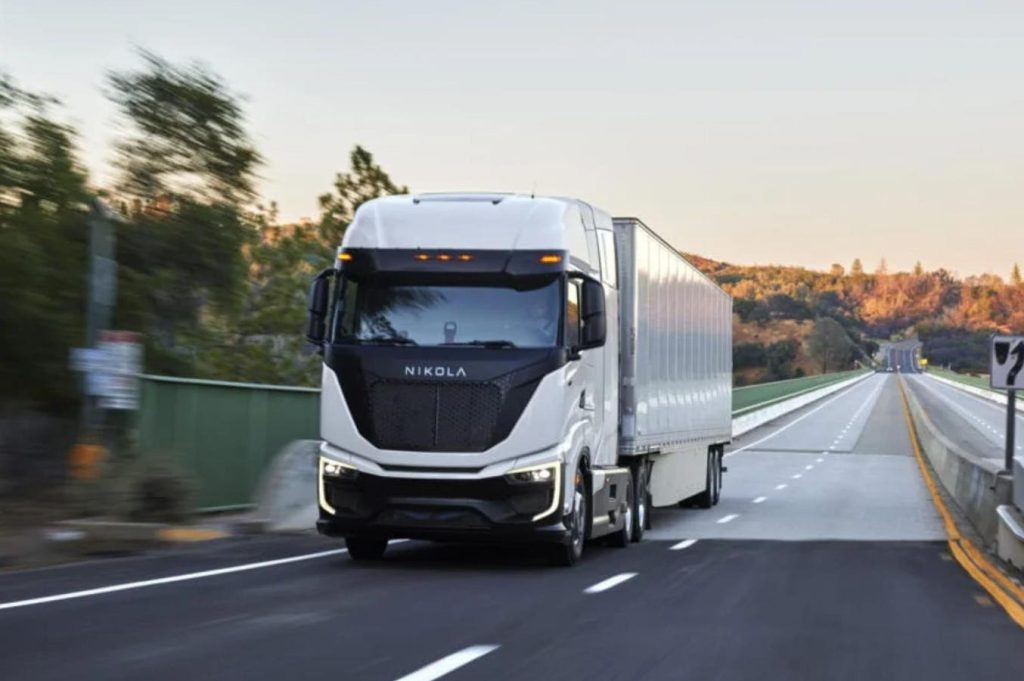Nikola, the first company to sell hydrogen-powered semis in the U.S., reported delivering more fuel cell trucks to customers in the first quarter of the year than analysts had expected. The company delivered 40 Tre FCEV trucks in the quarter and built 43 at its Arizona factory, surpassing expectations of just 33 deliveries. Additionally, Nikola has begun shipping repaired battery-electric Tre trucks back to customers after they were recalled last year for lithium-ion pack issues. The company’s new CFO and the opening of HYLA hydrogen fuel stations in California and Canada are also contributing to its positive momentum.
After facing challenges following the resignation of former founder Trevor Milton, who was convicted of securities fraud, Nikola is now under the leadership of CEO Steve Girsky. The company has shifted its focus to building battery and hydrogen trucks and setting up fuel stations to power them. Milton’s previous plans to become a major producer of green hydrogen, build electric pickup trucks, military vehicles, and watercraft have been abandoned. Nikola shares closed at 95 cents in Nasdaq trading, up 6.5%, but are well below their peak before Milton’s downfall.
Nikola is expected to benefit from new emissions rules for heavy-duty trucks recently announced by the Environmental Protection Agency. The standards will require truck manufacturers to produce vehicles with increasingly carbon-neutral technologies for model years 2027-2032. This is expected to accelerate demand for clean commercial vehicles and benefit Nikola as it builds out its charging and hydrogen fueling infrastructure. The company is currently focused on expanding sales in California, where a state program provides rebates to fleet customers who purchase the Tre FCEV.
Despite its modest sales volume, Nikola appears to be outselling Tesla in the electric truck market. Since last year, Nikola has delivered 154 hydrogen and battery trucks, while Tesla has not shared any delivery figures for its Semi truck since stating deliveries would ramp up in 2023. The Tesla Semi is not registered for California’s clean truck rebates, indicating it may not be selling well in the state with high demand for electric commercial vehicles. Tesla has not provided details on how many Semis it’s shipped or when it will register the truck for incentives.
To ensure long-term success, Nikola must focus on reducing quarterly losses and securing funds to scale up production. The company lost $966 million last year and reported $465 million in cash reserves. While Nikola is seeing growth in its hydrogen fueling solutions, it will need to address its financial challenges to sustain its expansion efforts. Despite facing uncertainties, Nikola continues to make progress in the commercial electric vehicle market and remains competitive against established players like Tesla.


